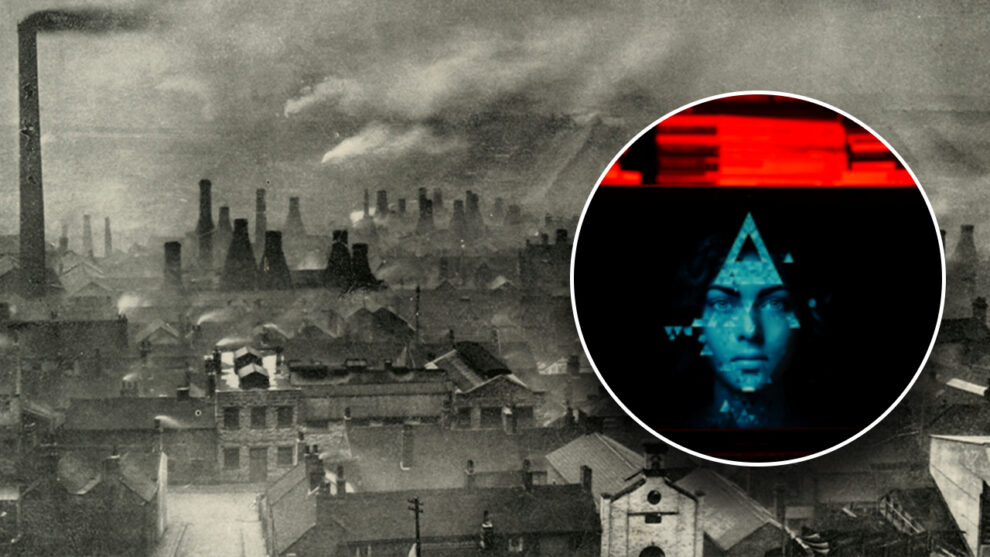The deputy prime minister of the United Kingdom is speculating that the proliferation of artificial intelligence will have a bigger impact on the nation than the Industrial Revolution.
“This is a total revolution that is coming,” deputy PM Oliver Dowden told The Times. “It’s going to totally transform almost all elements of life over the coming years, and indeed, even months, in some cases.”
“It is much faster than other revolutions that we’ve seen and much more extensive, whether that’s the invention of the internal combustion engine or the Industrial Revolution,” he added.
The use of artificial intelligence has exploded in recent months, following the release of ChatGPT and the public’s easy access to the chatbot that can mimic human conversation. For companies, governments and militaries, the tech is already being implemented to streamline work and assist humans.
In the U.K., Dowden explained the Home Office is already using AI to streamline how the government processes asylum claim applications.
“The thing that AI right now does really well, it takes massive amounts of information from datasets in different places and enables you to get to a point where you can make decisions,” he told the U.K. outlet.
“Ministers are never going to outsource to AI the making of decisions. But all of the work that goes into getting to that point… You can use AI to speed it up.”
Dowden said the use of the tech could reshape the U.K. economy, pointing to how “blacksmiths and farriers” were out of jobs following the invention of cars.
“We have a very tight labor market and the job of government is to make sure that people can transition,” he said. “Ultimately, AI should have the capability to do the boring bits of jobs, so that humans can concentrate on the more interesting bits.”
Dowden’s remarks follow Heritage Foundation economist Peter St. Onge telling Fox News Digital in April that regulators should keep their hands off artificial intelligence, arguing the tech will likely transform jobs and the economy – similar to other technological revolutions throughout history.
“Throughout history, we’ve gone through tremendous technological revolutions. Generally, technologies kill jobs,” St. Onge said at the time. “What happened? Well, you know, we had lots of new jobs. Almost nobody today works on a farm.”
“This is sort of the way of the world,” he added. The reason why you see technological improvements for any labor-involving function is in order to kill jobs – which is also known as saving work.”
St. Onge stressed to Fox News Digital in an email this week that “AI will disrupt millions of jobs, but we’ll automatically replace those jobs at higher wages ONLY IF governments can proactively get out of the way of job creation.”
St. Onge argued that “the market can’t work if government’s in the way,” and pointed to Detroit’s historical loss as an auto manufacturing giant compared to how Hong Kong shifted from manufacturing in the 1980s and ’90s to becoming a finance hub.
In his comments to The Times, Dowden went on to argue that with the explosion in use of AI comes dangers brought by hackers, bad actors and terrorists.
“You can shortcut hacking by AI. The ability to do destructive things – you can use AI to help you do those. Disaffected people exist already. Tie them in with AI, and that enhances, that proliferates, the kind of things that they can do. We need to be careful not to overstate these things and do it on an evidential basis, but there is the risk there that has to be addressed,” he told The Times.
He also acknowledged that AI could fan the flames of misinformation and give rise to AI-created deepfakes, which are videos and pictures that can be edited to appear as if they are actual images of other people.

Oliver Dowden walks outside No. 10 Downing St. in London, March 17, 2021. (Reuters/Hannah McKay)
“You think about how that image of the Pope and the puffer jacket went round the world. How many people when they first glanced at that, realized that that was a deepfake? And how many of those people had that impression, even if they subsequently found out that it was a deepfake?” he asked of a phony photo of Pope Francis wearing an expensive puffer jacket that went viral earlier this year.
The former chief scientific adviser to the U.K. government, Sir Patrick Vallance, also speculated back in the spring that AI would be as transformational as the Industrial Revolution, but unlike St. Onge, called on the government to intervene.
“There will be a big impact on jobs, and that impact could be as big as the Industrial Revolution was,” Vallance told the Commons’ science, innovation and technology committee in May. “There will be jobs that can be done by AI, which can either mean a lot of people don’t have a job or a lot of people have jobs that only a human could do.”
Source: Fox News











